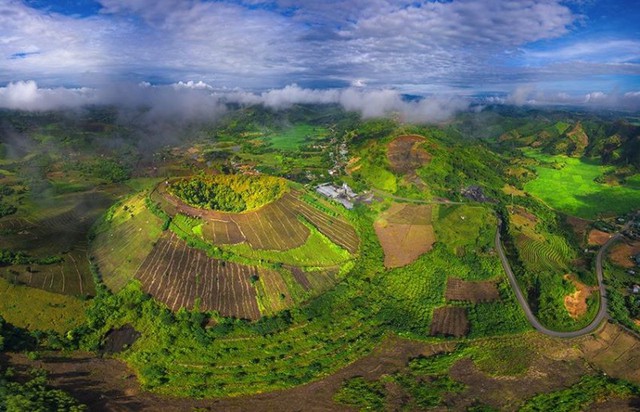Dak Nong Global Geopark status revalidated
VGP - Dak Nong Geopark in the Central Highlands province of Dak Nong has been revalidated as a member of UNESCO Global Geoparks Network for another four years until 2027.

Illustration photo
The re-recognition has been confirmed by the Department of Earth Science and Geological Risk Reduction under the United Nations Educational, Scientific and Cultural Organization (UNESCO).
President of the Global Geopark Network and member of the UNESCO Global Geoparks Bureau is expected to present the decision to Dak Nong province at the 8th Asia Pacific Geoparks Network Symposium, scheduled to take place in September this year in the northern province of Cao Bang.
The revalidation reflects Dak Nong’s efforts to protect and promote the values of the geopark and offers an opportunity to attract resources for the province’s sustainable socio-economic development.
Earlier, the geopark was first recognized by UNESCO as a global geopark in July 2020, becoming the third to obtain this title in Viet Nam, after Dong Van Karst Plateau Geopark in northern Ha Giang Province and the Non Nuoc Cao Bang Geopark in Cao Bang, also in the northern region.
It comprises more than 4,760 square kilometers, stretching through five districts – Krong No, Cu Jut, Dak Mil, Dak Song and Dak G’Long – and Gia Nghia Town, accounting for two-fifths of the province’s total area.
The global geopark covers the Nam Nung Nature Reserve, Ta Dung National Park, Dray Sap special-use forest, and a southern part of Yok Don National Park, which all boast great biodiversity values.
It has 65 geological and geomorphologic heritage sites, including a system of nearly 50 caves with a total length of more than 10km, along with craters and waterfalls.
The special feature in the geopark is the cave system in basalt rock located in the Dray Sap-Chu R’Luh area, which was discovered in 2007.
Visitors to the geopark can also experience the diverse spiritual life of local ethnic groups, reflected through folk beliefs, rituals and folk art which should be well preserved and promoted.
UNESCO Global Geoparks (UGGp) are single, unified geographical areas where sites and landscapes of international geological significance are managed with a holistic concept of protection, education and sustainable development. At present, there are 213 UNESCO Global Geoparks in 48 countries. /.
